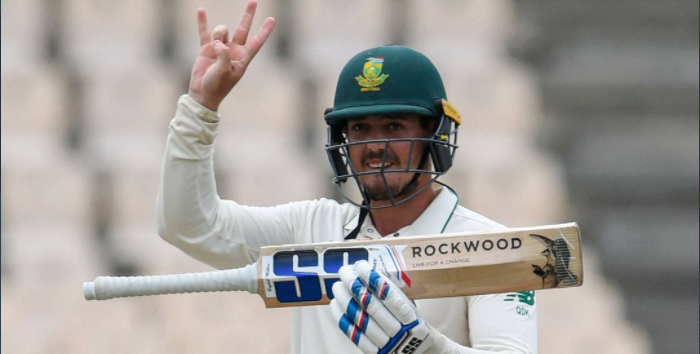The Proteas produced their most complete Test performance under Mark Boucher, addressing some major concerns in the process. What happens next is as important as what happened in St.Lucia, writes RYAN VREDE.
There really couldn’t have been a more emphatic statement made in a Test context. The Proteas’ innings and 63-run victory over the West Indies (their first away Test victory since 2017) was marked by an immensely encouraging collective effort.
This effort featured excellent performances from individuals who came into the Test desperate for form. For example, Kagiso Rabada hadn’t taken a Test five-for since March 2018 (17 Tests), while Quinton de Kock averaged 25 in the 10 innings preceding his unbeaten century.
In the build-up to the series I highlighted seven key problems to solve in the next chapter of the Future Tours Programme. The performance in the first Test was deeply encouraging because a many of those concerns were allayed by the strength of the performances.
In time we’ll have a clearer picture of other concerns. My question regarding Mark Boucher’s competency, for example, will be determined by whether his team can consistently produce the standard of performance they did in the first Test. Performances like that don’t happen independently of a head coach’s contribution, in the same way bad performances don’t. In this context, Boucher and his coaching staff deserve praise for preparing a team that performed to that level.
It is plain to see that the Proteas are loaded with talent. Talent, though, has never been enough to succeed consistently in Test cricket. It certainly won’t be enough to beat India in December, or next year in Test series against New Zealand, England and Australia. It is an unforgiving schedule, but one that will reveal just how close or far the Proteas are from these elite Test teams.
The New Zealand and India teams, who will contest the World Test Championship (WTC) final on 18 June, are undoubtedly loaded with talented players, but their true strength lies in their individual and collective temperament, which has fuelled their consistency. This has been at the heart of their ability to win from precarious situations in the period that determined the WTC finalists, and it is what the Proteas will need to exhibit if they hope to climb the Test rankings.
In the process of building a dominant Test team, the next thing is often the most important thing. Having beaten the Windies in two and half days, there shoudn’t be a dramatic regression in the second, starting on Friday. This will suggest that while the Proteas are capable of one-off, high quality performances, they aren’t yet at the phase of their development under Boucher where they are able to string together back-to-back performances of this or similar nature. They should be, given that the core group has been together since the start of his tenure.
It is self-evident that those who’ve found form need to capitalise on that. Rabada and De Kock are especially critical to the Proteas’ success, given their match-defining qualities and experience. They must be the foundations upon which success is built.
There are areas of concern. The opening partnership of Dean Elgar and Aiden Markram are statistically awful. The pair have scored 1,536 in 45 Test innings at an average of just 34.13. They are the 6th ranked opening pair in Proteas Test history. This needs to improve.
Rassie van der Dussen came into the Test averaging 34 after 14 Test innings. Two weeks back I noted that, while I think he is an excellent white-ball cricketer, he wouldn’t be in my Test XI. His 46, after coming in at 34-2, was critical and exhibited qualities that suggest there is a Test future for him. He will have to convert promise into consistent performance if he wants that future.
Then there’s the Temba Bavuma issue. The Proteas’ vice-captain missed out due to injury, but was already under pressure to keep his place. He averages 32 after 44 Tests. It is hard to build a cricket argument for his retention. His replacement, Kyle Verreynne, must be invested in, even if Bavuma recovers for the second Test. This is unlikely, which means Bavuma has to somehow find a level of competency he has lacked in Test cricket to date. I hope for the team’s sake he can.
In the build-up to the series I argued that there was more problems than promise for the Proteas Test team. The performance in St. Lucia tempered that view. I didn’t expect the team to click in the manner they did and show as much promise in key areas. And I’d be pleased to have that opinion embarrassed by the strength of their performances over the next phase of the FTP.







